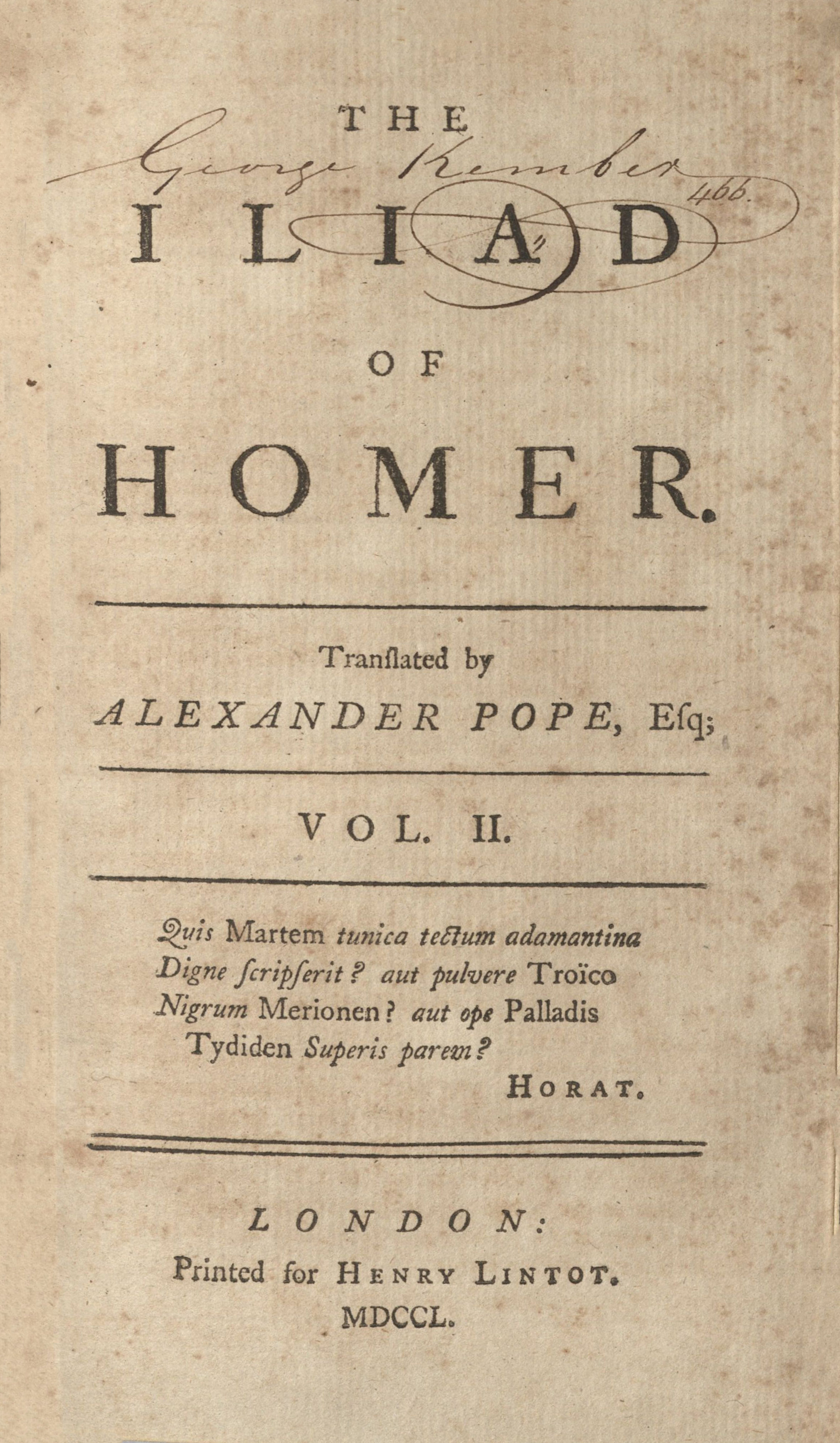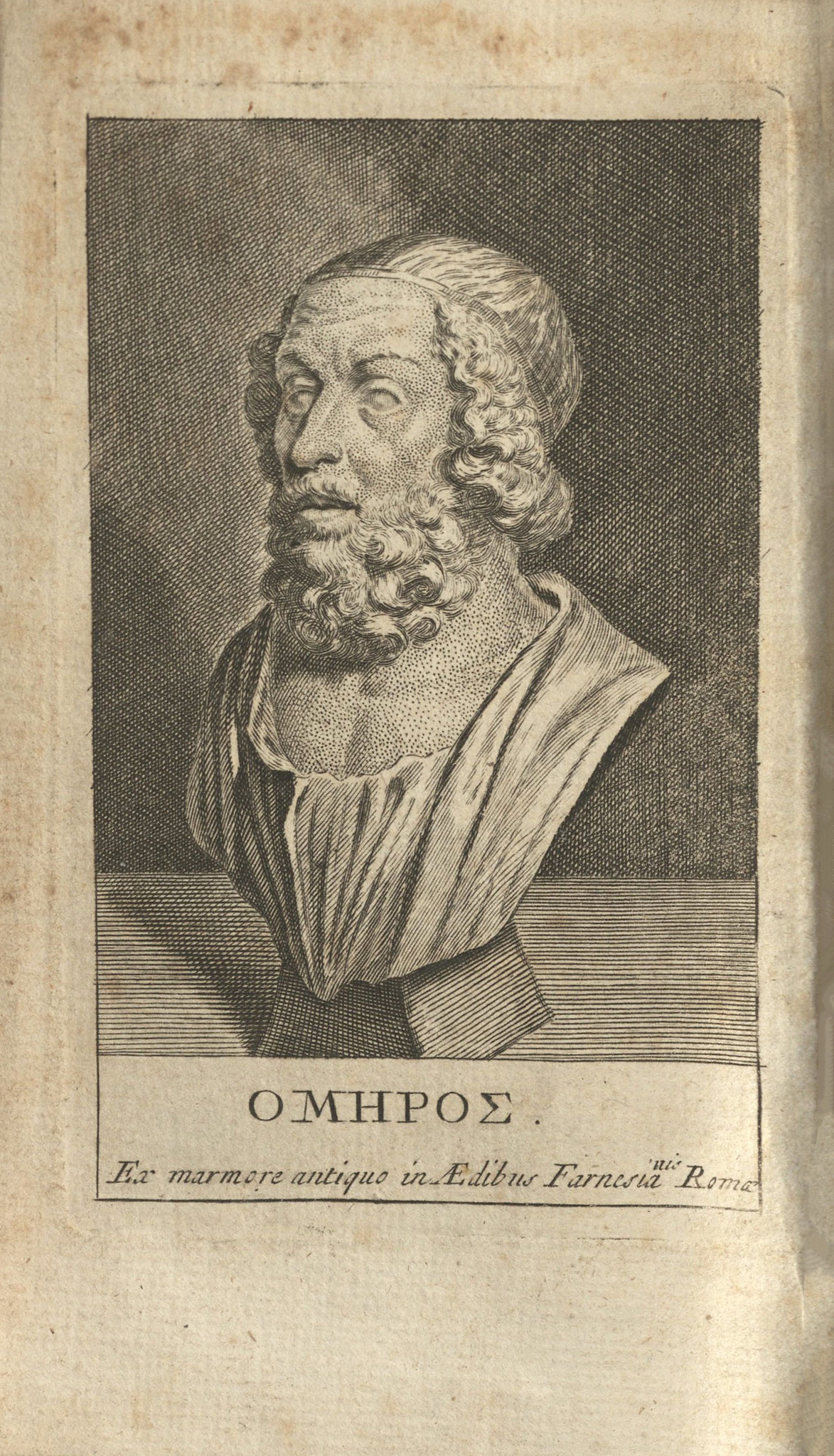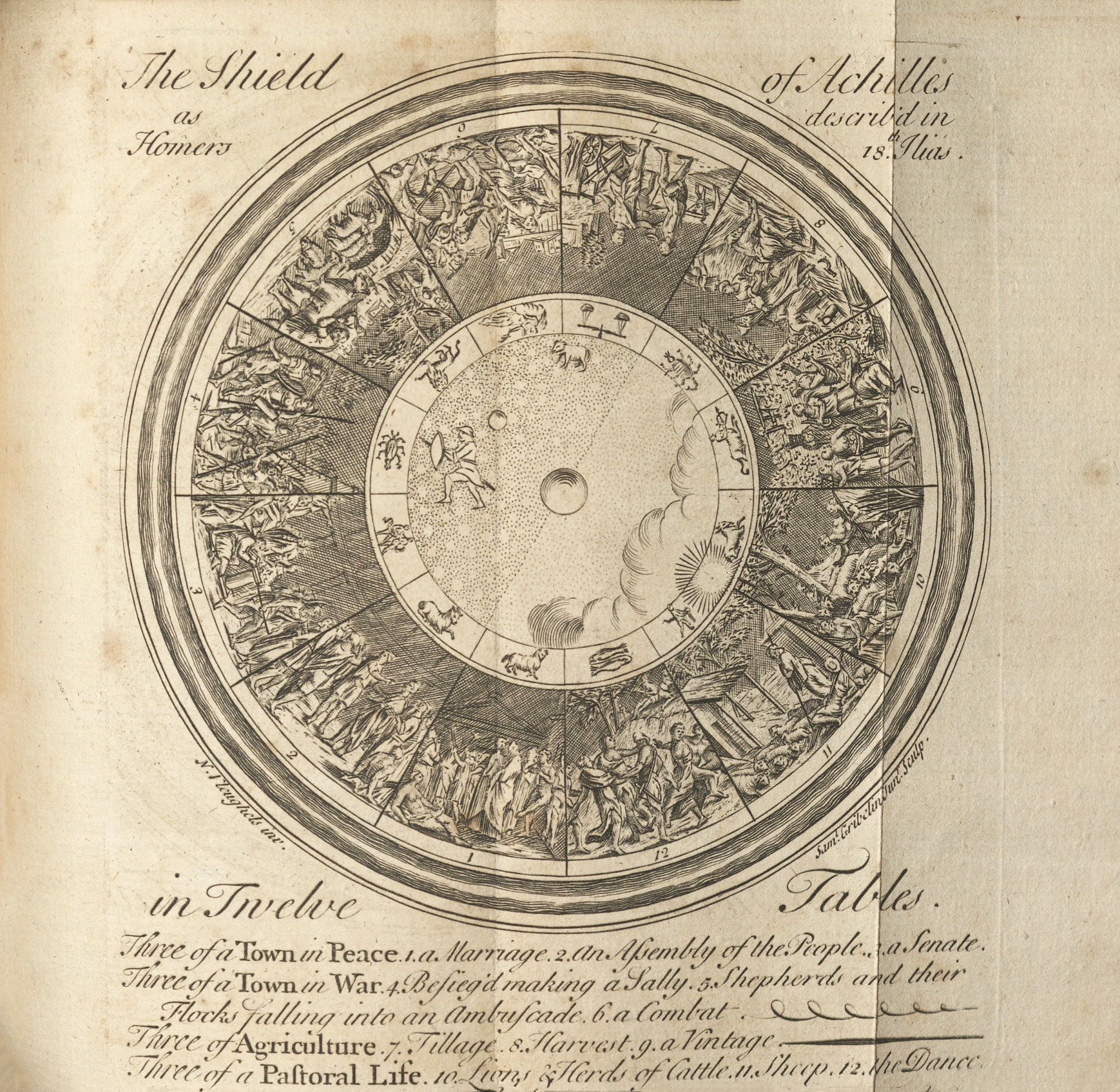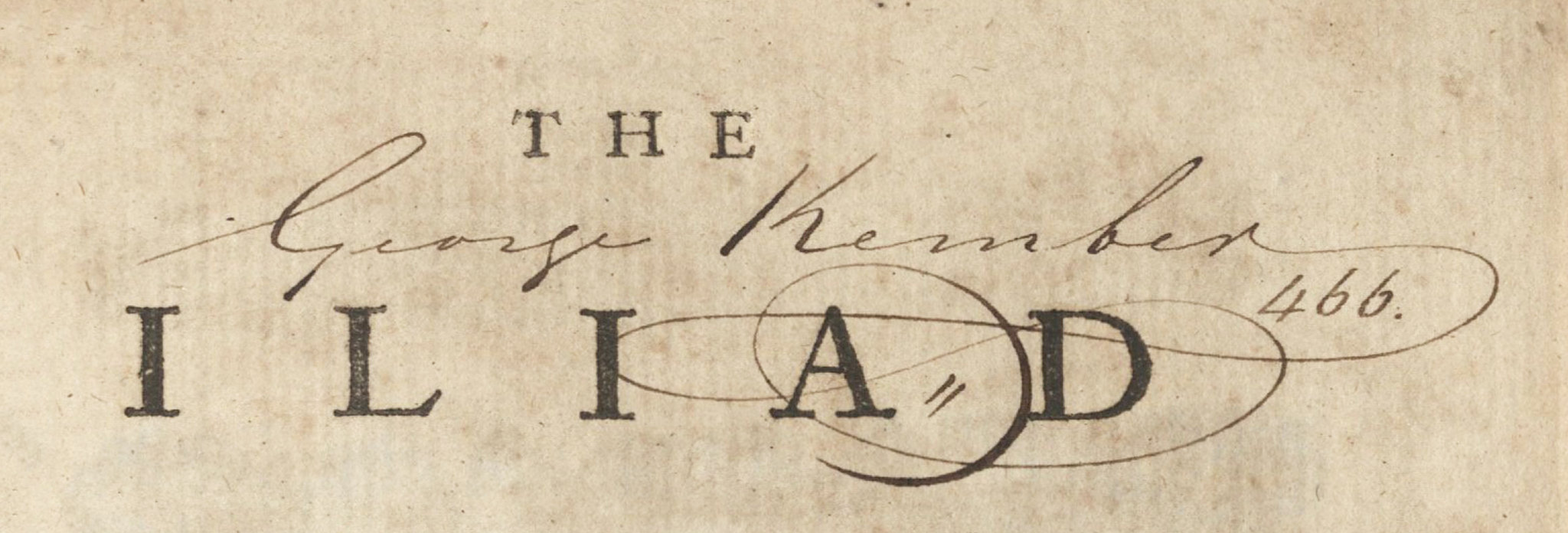The Iliad of Homer
Translated by Alexander Pope, Esq.
| Homer's Iliad | |
 Title page from The Iliad of Homer, volume two, George Wythe Collection, Wolf Law Library, College of William & Mary. | |
| Author | Homer |
| Translator | Alexander Pope |
| Published | London: Printed for Henry Lintot |
| Date | 1750 |
| Edition | First |
| Language | English |
| Volumes | 6 volume set |
| Desc. | 12mo |
| Location | Shelf H-4 |

Little is known about the life of Homer, the poet responsible for the Iliad and the Odyssey. Herodotus claimed Homer lived around 850 BCE, while modern scholars usually date his poems to the second half of the eighth century BCE.[1] The Trojan War is estimated to have occurred at the end of the Mycenaean Age in Greece, around 1200 BCE, meaning that Homer was looking back four centuries to a heroic world much greater in his esteem, than the contemporary world. Homer relied on oral history to compose his poems; this provides some of the basis for the "separatist" view that the two epic poems were not written by the same person, but possibly by a combination of poets. The mixed dialect of Ionian Greek in which each poem was originally written indicates that both poems were written in the east Aegean. This is supported by contextual clues in the poems themselves. The two most plausible locations for the birth of Homer are Smyrna and Chios, but ancient Greeks viewed the poet as a blind minstrel wandering while he composed the poems, which were sung or chanted, accompanied by a lyre.
Homer's Iliad is an epic poem of a heroic or tragic nature, consisting of 24 books, all of which are original except for Book Ten, which was likely added later.[2] It tells the tale of the wrath of Achilles during the last year of the ten-year Trojan War. The war began when Agamemnon led a unified force of Greek warriors across the Aegean Sea to attack Troy under the pretense of rescuing his sister-in-law, Helen (wife of Menelaus), from the Trojan prince Paris. Homer begins his narration in the tenth year of the war, covering several weeks during the war and focusing on the anger of Achilles at not being appropriately respected by Menelaus. Significantly described in the Iliad are the death of Patroclus (Achilles' foster brother and alleged lover) and the subsequent vengeance killing of Hector (the oldest son of King Priam of Troy). The respect and compassion between supposed enemies Achilles and Priam when the former returns Hector's body from the Danaan camp is an example of the humanity Greeks expected to be shown to one another even during war. The story ends with the funeral of Hector. Homer does not address the death of Achilles, the Trojan Horse or the fall of Troy. All of those stories come to us from the Latin poet Virgil's epic, The Aeneid.

Evidence for Inclusion in Wythe's Library
Thomas Jefferson's inventory of George Wythe's books from 1806 lists "Pope's Homer's Iliad. 1st. 3d. 4th. 5th. 6th vols 12mo," lacking the second volume, as well as "Pope's Odyssey. 5.v. 12mo." Jefferson gave these sets to his granddaughters Ann and Ellen Randolph. Volume I of this set survives in the collection at Monticello, identifying the edition as the 1750 version of Alexander Pope's translation printed by Henry Lintot. The surviving volume contains Wythe's bookplate and the signatures of Ellen Randolph (Jefferson's granddaughter), and her brother George Wythe Randolph.[3]

Based on the volume in the Jefferson Library at Monticello, the Wolf Law Library purchased an available copy of the 1750 edition.
Description of the Wolf Law Library's copy
Bound in contemporary full leather with gilt Greek meander border stamped around both boards. Spines feature gilt decorative elements and added gilt labels for title and volume numbers. Title label missing from volume five; volume labels missing from volumes four and five. Former owner's signature, "George Kember, 466," on each title page. Purchased with the George Wythe Boswell-Caracci Room Acquisition Fund.
Images of the library's copy of this book are available on Flickr. View the record for this book in William & Mary's online catalog.
See also
- Homeri Ilias
- Homerou Ilias kai Odysseia
- Tēs tou Homērou Iliados
- Homērou Odysseia
- Tēs tou Homērou Odysseias
- Ilias kai eis Auten Scholia ton Palaion = Homeri Ilias et Veterum in eam Scholia, quae Vulgo Appellantur Didymi
- Jefferson Inventory
- Known Surviving Wythe Volumes
- The Odyssey of Homer
- Incerti Scriptoris Graeci Fabulae Aliquot Homericae de Ulixis Erroribus, Ethice Explicatae
- Wythe's Library
References
- ↑ "Homer” in The Oxford Companion to Classical Literature, ed. by M.C. Howatson (Oxford: Oxford University Press, 2011).
- ↑ "Homer" in Oxford Dictionary of the Classical World, ed. by John Roberts (Oxford: Oxford University Press, 2007).
- ↑ Bennie Brown, "The Library of George Wythe of Williamsburg and Richmond" (unpublished manuscript, September, 2016) Microsoft Word file.